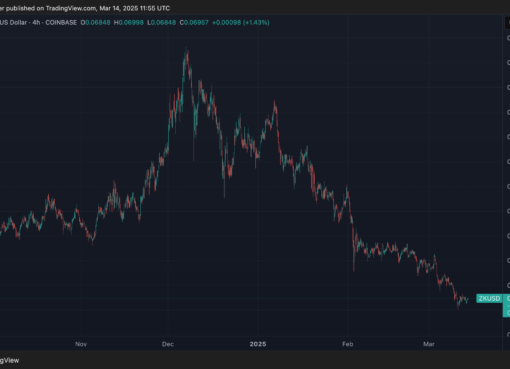Applications are now open for the fourth and final round of funding for the Information Commissioner’s Office’s (ICO) current grants programme. The ICO committed to run the grants programme until 2021 and work is ongoing this year to review and report on its progress.
The scheme, now in its fourth year, supports independent research into privacy and data protection issues and develops privacy-enhancing solutions. It focuses on projects that will make a real difference to the UK public.
Elizabeth Denham, Information Commissioner, said:
“When I launched our grants programme in 2017, it was to encourage research and privacy innovation in significant areas of data protection risk. From the start, my office had a clear vision of a well-funded scheme that could have a genuine impact on the UK information rights environment and improve public trust in how personal data is used. I also wanted to see the programme giving a greater voice to some of the expertise and creative thinking I had seen in the UK’s academic and not-for-profit communities.
“As we launch the next phase of the programme, I would reflect it has already successfully met those objectives.”
Projects previously funded through the grants programme include an online privacy toolkit for children, created by Sonia Livingstone and her team at the London School of Economics and Political Science, as well as a project that looked at the data rights of people experiencing homelessness.
The scheme has also supported research into the impact of data protection law on the use of pseudonymised genomic data in healthcare, along with projects that facilitated transparency around AI, big data and machine learning.
Stephen Almond, Director of Technology and Innovation at the ICO, said:
“I’m excited to be part of this ICO initiative to stimulate ground-breaking research into areas that affect our daily lives and online privacy. Innovation in data protection makes people’s lives better, whether it’s finding new ways to protect children and vulnerable individuals online, to improve homeworking practices or creating ways to safeguard people’s data protection rights in relation to complex biometric and surveillance technologies.
“The UK has a vibrant research community and in this data driven world it’s important to us that we support privacy and data protection initiatives to address the issues of the day.”
Organisations are invited to bid for a grant of up to £100,000 to support independent research and projects. The ICO is seeking proposals that meet one or more of the six strategic goals set out in the Information Rights Strategic Plan and provide a clear public benefit, with outputs that are open source and re-usable. Examples of areas we are interested in include:
- surveillance technologies;
- ‘datafication’ of homeworking;
- digital identity;
- data sharing, smart cities, artificial intelligence, big data; and
- data protection issues and solutions for vulnerable adults, groups at risk of inequality and children.
Further information about the grants programme, including eligibility, funding and outcome expectations is available on the ICO’s grants programme hub. The hub also contains details and output from the completed and ongoing projects from previous rounds. It is hoped that data protection professionals and academics alike will utilise these outputs to continue to innovate across the privacy sphere.
A webinar for potential applicants, discussing the programme in more detail and answering questions, will take place on Wednesday 10 February at 2pm. You can register to take part here.
Notes to Editors
- The Information Commissioner’s Office upholds information rights in the public interest, promoting openness by public bodies and data privacy for individuals.
- The ICO has specific responsibilities set out in the Data Protection Act 2018, the General Data Protection Regulation (GDPR), the Freedom of Information Act 2000, Environmental Information Regulations 2004 and Privacy and Electronic Communications Regulations 2003.
- The European Union’s General Data Protection Regulation (GDPR) is a new law which applies in the UK from 25 May 2018. Its provisions are included in the Data Protection Act 2018. The Act also includes measures related to wider data protection reforms in areas not covered by GDPR, such as law enforcement and security. The UK’s decision to leave the EU will not affect the commencement of the GDPR.
- Under the GDPR, the data protection principles set out the main responsibilities for organisations. Article 5 of the GDPR requires that personal data shall be:
- Processed lawfully, fairly and in a transparent manner in relation to individuals;
- Collected for specified, explicit and legitimate purposes and not further processed in a manner that is incompatible with those purposes;
- Adequate, relevant and limited to what is necessary in relation to the purposes for which they are processed;
- Accurate and, where necessary, kept up to date;
- Kept in a form which permits identification of data subjects for no longer than is necessary;
- Processed using appropriate technical or organisational measures in a manner that ensures appropriate security of the personal data; and
- Article 5(2) requires that “the controller shall be responsible for, and be able to demonstrate, compliance with the principles.”.
- The ICO Grants programme is run in line with our obligations as a public body to account for our expenditure and value for money. We have chosen to run the programme in accordance with the UK Government’s Minimum Grant Standards. Further details on the requirements can be found at Grants Standards – GOV.UK.
- The grants programme supports the delivery of the ICO Information Rights Strategic Plan 2017-2021. The programme is set to be reviewed after the fourth round of funding.
- To report a concern to the ICO telephone our helpline 0303 123 1113 or go to ico.org.uk/concerns.



